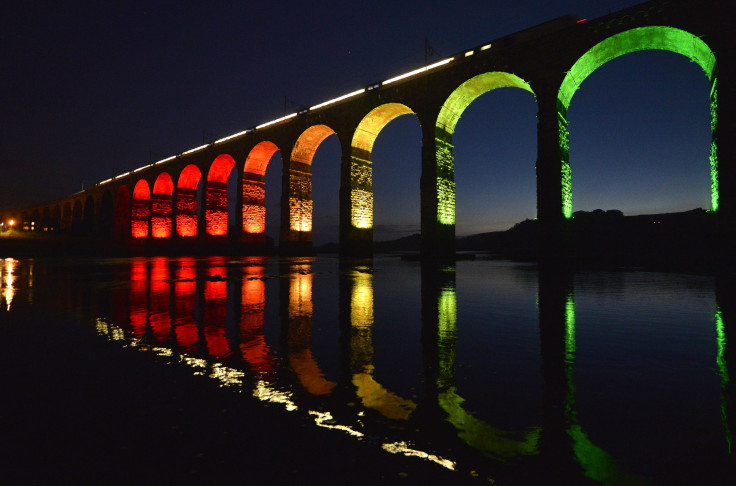Formal Countdown Begins For Scottish Vote That Could Break Up United Kingdom

(Reuters) - The formal campaign for a Scottish independence vote that could result in the break-up of the United Kingdom began on Friday, though polls currently show Scots are unlikely to vote for the demise of the 307-year-old union with England.
Scottish nationalists hope the desire for independence, historical rivalry and what they say has been centuries of mismanagement by far-off leaders in London will drive Scots to vote for secession in the Sept. 18 referendum.
Britain's main politicians have united against a breakaway, issuing pleas for unity and warnings about the economic costs of independence to the 4 million Scottish resident voters over the age of 16 who will have a vote.
Polls currently show Scots are unlikely to vote to break the union, with roughly 40 percent against independence and 30 percent in favor but there are still enough of them undecided to swing the vote.
"The 'no' to independence campaign has held a lead and has done throughout most of the polling," said Tom Mludzinski, head of political polling at ComRes consultancy. "It's been narrowing recently, but it's still nowhere near enough if independence is going to win."
He added: "we're still a few months away, and if it's similar to general elections, many people do make up their minds in the last month or few weeks. So things could change."
The formal start of campaigning starts the clock ticking down through the final 16 weeks to the vote while placing limits on spending to 1.5 million pounds ($2.5 million) for each camp.
Both the pro-independence "Yes Scotland" or pro-Union "Better Together" side will get free airtime for campaign broadcasts.
Oil-rich Scotland accounts for about one-tenth of the United Kingdom's gross domestic product, and to lose it would weaken British diplomatic clout and raise questions over the permanent seat on the U.N. Security Council.
UNITED KINGDOM?
Money has loomed large over the debate, with both secessionists and unionists trying to convince voters that their prosperity is on the line.
The Scottish government, led by the secessionist Scottish National Party (SNP), wants to put an end to direct control from Westminster while keeping what it describes as "joint assets" such as the pound and the monarchy.
Prime Minister David Cameron's Conservative-led coalition government and the opposition Labour party have argued Scotland is richer and more powerful as part of the United Kingdom.
The government in London has floated the prospect of more autonomy should Scots vote against independence. Scotland has had a devolved parliament since 1999.
The SNP has used the parliament as a platform to raise its profile, arguing that even with devolution Scotland would have to help pay for Britain's nuclear deterrent, over which Scots have no direct say.
Scottish First Minister Alex Salmond says independence - and control of a share of Britain's North Sea oil - would place Scotland among the world's richest countries.
Britain disputes this, however, saying that projections of an independent Scotland's wealth simply reflect how it benefits as part of the union.
Britain said there was a 1,400 pound "UK dividend" from staying in the United Kingdom, while Salmond has valued the "independence bonus" at 1,000 pounds.
"The two governments have entered the hot phase by each trying to quantify the cash impact for ordinary Scots of voting Yes or No in September," said Charlie Jeffery, a professor of politics at the University of Edinburgh.
"What may well matter most in deciding the outcome in September is whether people think they would be better or worse off."
© Copyright IBTimes 2024. All rights reserved.











